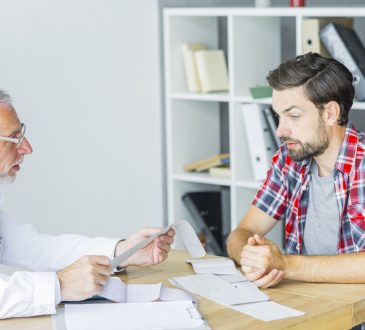
Colonoscopy
Colonoscopy is a clinical examination done by an experienced doctor to visualize the insides of your large intestine and the rectum. It is done using a long, thin, flexible tube with a small camera attached to it. Colonoscopy is often confused with sigmoidoscopy, while they are both similar tests, sigmoidoscopy only looks at the lower part of the large intestine, which is the sigmoid colon and rectum.
What are the indications of colonoscopy?
Your doctor may recommend a colonoscopy as a screening or diagnostic test. It is usually done to look for any abnormalities in the large intestine and the rectum. This procedure is the gold standard for screening and evaluating colorectal cancer and intestinal polyps. Other indications include management of inflammatory bowel diseases such as Crohn’s disease and ulcerative colitis, specifically during follow-ups to note the progress of the disease. It is also used to determine the location of lower gastrointestinal bleeding due to hemorrhoids or diverticula and to decompress the bowel in the case of volvulus.
What are the contraindications of colonoscopy?
There are a few instances where colonoscopy may not be a suitable option for you. Those include :
- Pregnancy – unless it is a life-threatening condition as it poses a higher risk of complications
- Suspected colonic perforation
- Toxic megacolon
- Severe inflammatory bowel disease with ulceration
- Fulminant colitis
Individuals with these conditions, except for pregnancy, are advised against colonoscopy due to a higher risk of bowel perforation.
Preparing for a colonoscopy
In order to get a clear image during colonoscopy, the colon needs to be emptied. Your doctor may recommend a few things before your scheduled colonoscopy. These include :
- Following a special diet one day before the procedure
- You may not be allowed to eat solid food a day before your colonoscopy, but you may have clear fluids like water, black coffee, and broth.
- Laxatives or enema kit
- These may be recommended to help clear out your bowel before the procedure. It is usually recommended to take a laxative the night before your procedure.
- Medication review
- You should inform your doctor about the medications you are taking because you may need to adjust your dosages or stop taking them temporarily. Some examples of medications include blood thinners like warfarin or anticoagulants like aspirin.
During the procedure, you may be sedated as this procedure can be quite uncomfortable. It does not usually cause any pain and may last up to an hour. After the procedure, you will be monitored for an hour till the sedative wears off. You are encouraged to bring a companion to drive you home after the procedure. The results of the exam will be informed to you during the next follow-up appointment.
When should a female get a colonoscopy?
As we know, the main indication of this procedure is to screen and diagnose colorectal cancer and intestinal polyps. Both males and females are equally at risk of developing this disease. The usual age of onset is between 45-50 years old, so women and men are recommended to get a screening colonoscopy for colorectal cancer from the age of 45 years. However, you should consider getting a colonoscopy done earlier if you have a strong family or personal history of colorectal cancer, polyps, inflammatory bowel disease, hereditary syndromes such as familial adenomatous polyposis, (FAP) or Lynch syndrome.
In conclusion, colonoscopy is a useful test when it comes to screening and managing colorectal cancer and intestinal polyps, in addition to other diseases affecting the large intestine and rectum. Every procedure has its risks and for this procedure, it may result in bowel perforation. However, the chances of bowel perforation are very low. Talk to your doctor to understand more about women’s health screening.




